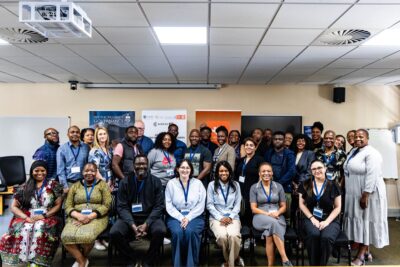At Big Think, Simon Critchley reflects on whether “Obama’s election signal(s) a desire for a new Enlightenment”:
Visit Big Think to watch the “Idea” and for the full transcript. For some discussion about Critchley’s past writings about Obama, see “This is our moment, this is our time,” by Robert Bellah and “Obama’s faith in the common good” by Ruth Braunstein at The Immanent Frame.














Near the beginning of his statement, Simon Critchley says, “Based on what’s happened recently, the future seems to be…defined by this triangle of religion, politics, and violence.” Just a couple sentences later he continues, “What Obama has done…is to as it were take that idea of religiously motivated politics from the right and to transpose that for Liberals in a way that Liberals can also believe. Belief isn’t something that they have.”
These two statements intersect compellingly, for Critchley seems to be implying two things. First, violence is intrinsic to the relationship between religion and politics. Second, religion (or at least religious motivation) is the same as belief. (I wonder if he would also equate faith with religion/belief. Each of these seems to be a distinct concept.)
Each of these assumptions is problematic, but if even we accept them for a moment, they do not seem entirely reconcilable. If belief is equated with religion, then it can be substituted into the triangle as belief-politics-violence. But belief and politics have lately been interacting in a productive way (under Obama), as even Critchley attests.
He also says, “What Obama has done is to re-infuse or reinvigorate that civil religion that allows people to believe, and what’s fascinating about that is the way in which that belief will enable people to organize and change their view of things.” How is this particular relationship between (Obama’s) politics and (civil) religion tied up with violence? It seems constructive, not destructive. Perhaps I am doing an overly simplistic reading of this argument, but it really seems as though Critchley’s support of liberal belief and well-wrought civil religion is at odds with his insistence that violence is inherent to religion/politics.
Does he mean that religion and politics breed violence when employed/deployed by the “wrong” leaders, for instance (as he mentions) George W. Bush and Osama bin Laden? Well, that’s an obvious assessment. I don’t doubt that there’s more nuance to Critchley’s view here, but I would like to read a clearer articulation of it. At any rate, the recasting of religion (a term so negatively received by the generally secular academic community) as “belief” (a much more neutral, even rosy, term) remains compelling. It’s something I’d like to consider further.
Historically speaking and all things considered, I think we may be living in an intellectual dark age. Our research capacities may be intact, but our secular philosophizing and our social critique, etc. is not doing any productive work, intellectually or politically.
So, people seek alternatives. How many people start in political science and end up in history? May as well accomplish something, right? Trace modern political philosophy back and you’ll hit “religion” soon enough.
Same thing. Most secular liberals ignore “religion” when they run into it in some political thinker deemed “liberal” or “democratic” by the canonists.
I guess Obama decided he’d go with a different angle.